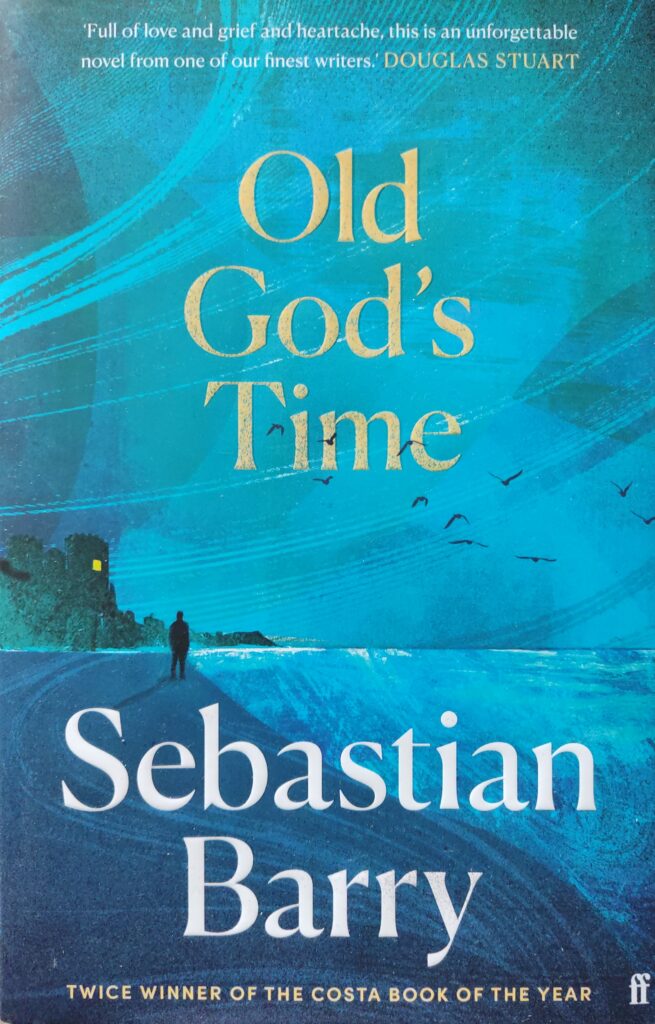I finished ten books in July, eight as part of my project for the month — Ireland — five by women/POC, three in German, one in Portuguese.

- Small Things Like These — Claire Keegan
- Irisches Tagebuch — Heinrich Böll
- Collected Stories — Bernard MacLaverty
- The View From Here — Sara Berkeley
- Old God’s Time — Sebastian Barry
- A palavra que resta — Stênio Gardel
- Reichlich spät — Claire Keegan, tr. Hans-Christian Oeser
- The Long Game — Aoife Moore
- The Magician — Colm Tóibín
- Empusion — Olga Tokarczuk, tr. Lothar Quinkenstein and Lisa Palmes
Starting with Ireland, The Long Game is an account of Sinn Fein’s journey from an adjunct of the IRA in the early 70s to being in or near government on both sides of the border. There’s an inevitably large cast, which can be wearying at times, but overall it’s a very readable introduction to the party — Moore makes it clear how weird it can be from her introductory note on sources onwards. The central, contrasting figures of Adams and McGuiness are fascinating.
The Magician is the second Colm Tóibín I’ve read (after Brooklyn), and I still can’t say I’m a fan of his rather flat style. I also thought he doesn’t have a real solution to the problem of a novel about a real-life person, where the story necessarily follows more or less random events. The portrait of Mann as a well-meaning but generally terrible paterfamilias is psychologically convincing, but again the inconvenient facts (in this case the large number of children, who I found hard to keep track of, never mind differentiate) gets in the way.
Old God’s Time is a complete contrast: Barry’s style is spectacular, and he’s not afraid of turning it on even at emotional high-points:

The style meshes well with the story, as the reader is left to deduce what the reality is below the surface brilliance. Some aspects (the Chekhovian gun!) were rather heavy-handed, but that’s a minor niggle.
I’ve been reading Bernard MacLaverty’s Collected Stories for a while, and finished them at just the right time. A lot of the stories have similar themes — childhood and small-mindedness in particular — so I wouldn’t want to read too many together. Throughout, though, there are wonderful descriptions:
“her mouth slightly smiling, yet not smiling — the way a mouth is after smiling.”
“After the bright sunlight it was gloomy inside. It smelt of old and cat.”
“the sneeze as the automatic doors opened and closed.”
The View From Here was another hit — a collection of poetry by an Irish adopted-American, spanning both countries. It struck a perfect balance for me between the comprehensible and the thought-provokingly opaque:
“fierce-eyed, animal soft”
“our shadows crouch like insects and although the screens tell us all trains will be on time it’s hard to be alive.”
Part of the Irish theme turned out to be a mini-Claire-Keegan-fest: I’d been expecting to love Small Things Like These, but I was underwhelmed — perhaps I expected too much. As a few others have mentioned, there’s a Christmas Carol feeling to the portrayal of the family in particular, which I found hard to take. I much preferred the story which I read in translation, Reichlich spät (So Late in the Day), which has a well-judged balance of comedy and horror as we get to know the protagonist.
The last Irish-themed book, Böll’s Irisches Tagebuch, was not quite what I expected: rather than a diary, it’s a collection of sketches based on his experiences, which he then compiled into book form. Again there’s a delicate balance, in this case between realistic descriptions of the poverty which was still widespread at the time (the 1950s), and an appreciation of the humour and warmth of the population, which only occasionally veer into sentimentality. A tramp paying a chip shop-owner twenty shillings to cover the excessive helping of vinegar another customer had appropriated was a particular highlight, combining both elements beautifully.
One last semi-accidental link: Empusion continues the Thomas Mann theme, referencing/parodying Der Zauberberg in a tale of tuberculosis, sexism, and the paranormal. It’s very weird, and I need to think more about it, but it’s well worth a read, and the twist at the end is very much of the zeitgeist!
Lastly, A palavra que resta is another one I’ll need to come back to, in this case mainly for linguistic reasons. It’s written largely in a stream of consciousness style, in northeast-Brazilian dialect, which did not make things any easier. With the help of a great discussion at the Portuguese in Translation book club I understood enough to enjoy the book, and picked up some interesting new vocabulary. There’s also a big thematic overlap with the Tokarczuk….
August, as usual, is Women in Translation month, though there are some others I need to fit in too. I have a long shortlist.
